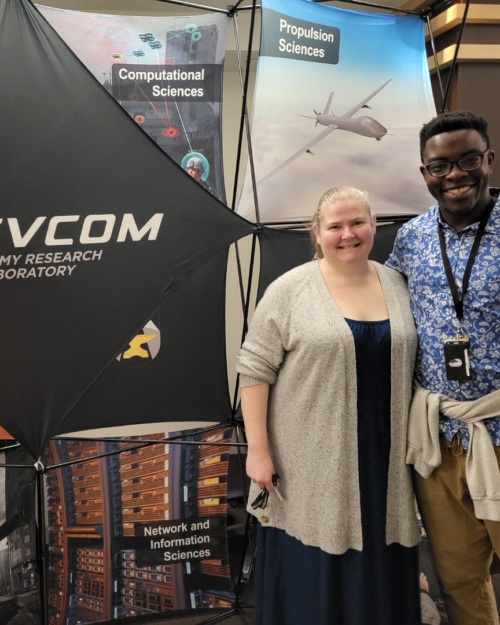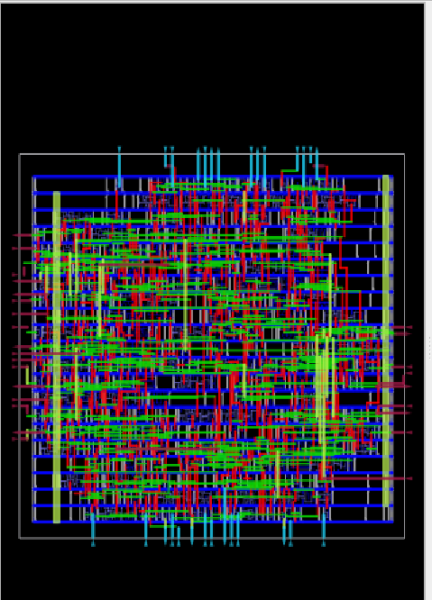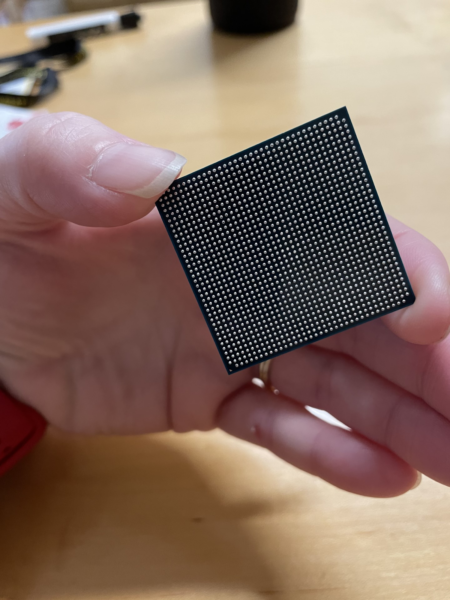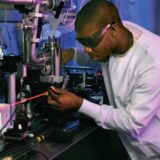August 1, 2023

AEOP’s Research Experiences for STEM Educators and Teachers (RESET) program provides teachers with summer research experiences and enhanced content knowledge at participating U.S. Army Laboratories and Centers. RESET is a program for high school and upper middle school teachers of science, math or career technical education, including engineering and other topics closely related to STEM.
We sat down with Nicole Aquino, a science teacher at Parkview High School, who has been working this summer with Dr. Oluseyi Ayorinde at a DEVCOM Army Research Laboratory in Los Angeles, California to learn about her experience with RESET.
What is your role within the RESET program, and what is your job outside of the program?
I am a level two teacher in the RESET program this summer. In the fall, I researched with other teachers, and then we implemented lessons we learned directly in our classrooms. In the spring, we did training on the 5-E lesson plan, a particular style of lesson planning that focuses on Engagement, Exploration, Explanation, Evaluation and Elaboration. As a level two teacher, I get to work with an on-site scientist and explain to two level one teachers about what I’ve experienced. It’s a great opportunity to be able to learn so much new information and then share it with colleagues who are all as interested in STEM as I am. Altogether, we write a lesson or a unit based on what we learn – in this case, about building the blueprints for microchips through coding (right).
Outside of RESET, I am an alternative education high school science teacher in a homeschooling program. I work with students in science labs in-person once a week. Science is inquiry-driven, so the format of RESET fits very well with the goals of my curriculum.
science labs in-person once a week. Science is inquiry-driven, so the format of RESET fits very well with the goals of my curriculum.
How did you find the AEOP RESET program?
A teacher friend of mine is a coach in my district, and she’s been doing RESET for five years – it came highly recommended!
What does your day to day look like in the program?
I personally have made use of a hybrid schedule. I had so much to learn about coding in a virtual machine and what goes into creating microchips, so I spent a lot of time researching. I then built a website to house the curriculum for the unit we are building to release as open source for all teachers, in addition to creating worksheets, quizzes, a Canvas page, and even labs to make the content as engaging as possible – what if you needed to code to stop a bank from being broken into? I had no coding experience before this, and now I totally feel like a hacker!
Could you describe the research project you are currently working on?
OpenROAD is an open-source nonprofit group that takes parts of a microchip design and makes it accessible to all people. The goal of the work that I’m doing is to create a curriculum that allows teachers to teach this process nationwide in high schools. I work with Dr. Ayorinde, a DoD scientist, and Jim Burnham, a teacher who worked in this industry for 35 years and teaches courses, and my role is to make sure teachers will be able to understand the content and teach their students. Ultimately, the goal is to get more people in the field of creating microchips, where there’s currently a lack.
Can you share any specific moments from your research experience that have stood out to you?
There’s been so much. Learning how to code has been such a unique experience. I was talking to my 10-year-old, and she said, “Mom, this is so cool, I want to learn how to code and be a hacker!” I also know some specific students at my school who would love to learn about the coding process and microchips, and I know some teacher friends who would love to teach this! There is a true need in our country for this. And I love how passionate everyone I work with is about wanting to get this program out there; we want this to be accessible to students nationwide.
 What do you hope to bring back to your classroom once your time at RESET has concluded?
What do you hope to bring back to your classroom once your time at RESET has concluded?
Tech skills for sure. I was already pretty “techy,” but this amps it up a lot. This work has deepened my understanding of the relevance of microchips. And it’s important – there’s so much day-to-day computer usage that relies upon this kind of work.
When thinking about my students, I know exactly which students are going to nerd out with me over this! I’ve learned that teaching my middle school students binary is something I can totally do. If I had time to teach this as a standalone course, I would.
What advice or insights would you give to other educators considering applying to the RESET program in the future?
Do it! I’ve learned so much. Beyond the technology understanding I’ve gained, I’ve grown as an educator. We’re given the time to evaluate the resources we’re given, use them in the classroom, and then – most importantly – reflect on the usage of those resources. Before RESET, I would find a great resource but either wouldn’t use it or reflect on how it’s used. Getting the time for that reflection and the opportunity to discover and learn about the amount of resources available to me has been very helpful.
The community and connections within this program are amazing. Hearing different perspectives from teachers across the country isn’t something that a lot of teachers get to do. RESET’s spring scientists chats and monthly check-ins have taught me so much. Every teacher, regardless of being a STEM educator or not, should have the opportunity to do this!

Research Experiences for STEM Educators and Teachers (RESET)
Research Experiences for STEM Educators and Teachers (RESET) provides teachers with summer research experiences and enhanced content knowledge at participating U.S. Army Laboratories and Centers.
More About Research Experiences for STEM Educators and Teachers (RESET)Find a Volunteering Opportunity
Visit our Program Volunteers page for a tool to find the best opportunity for you.
eCYBERMISSION Mini-Grant
The eCYBERMISSION Mini-Grant is intended to support teachers/program leaders as they implement eCYBERMISSION with their teams. Educators (formal and informal) of students in grades 6-9 are encouraged to apply.
